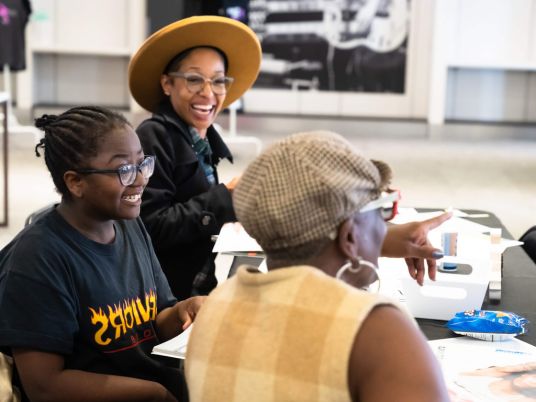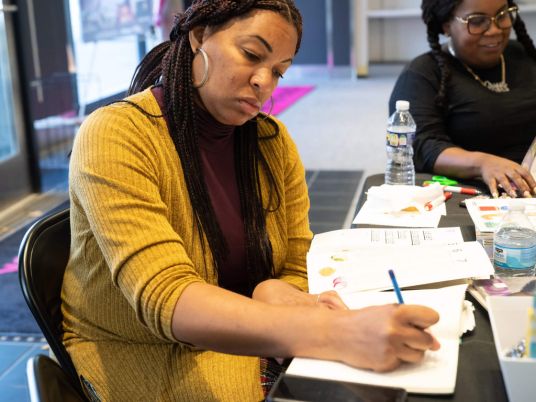Creating social justice through durable skills creating lifelong career readiness.
Our goal is to help people achieve financial security and self-fulfillment by:
Delivering digital readiness training
Cultivating entrepreneurship & employability
Honing social-emotional skills
Our Mission
Our mission is to close persistent societal gaps including the digital divide, wealth and career attainment gaps, and the mental health crisis.
Our Vision
We envision a future where each individual is able to peacefully participate in society in a way that is meaningful, equitable, and profitable. In this future digital resources, education, and support are provided and tailored to each person’s unique needs, aptitudes, interests, and skills. Our communities coexist in harmony and productivity, lifting each other as we grow.
Challenges We Solve
Below is a detailed description of the challenges we help to solve.

Entrepreneurship Opportunity Gaps
- Small businesses make up 99.9% of all U.S. businesses but a minority of the workforce.
- Women- and minority-owned businesses still lag far behind firms owned by white men.
- Women-owned businesses have skyrocketed by 114% over the past 20 years; however, the revenue share of women-owned businesses has fallen .02% in that same period.
- The majority of entrepreneurs did not possess a college degree.
- Minority-owned businesses were less likely to attract outside funding.
Digital Readiness Gaps
Research shows that the majority of people don’t know how to protect themselves online, and that access to technology education can advance or impede professional success.
Among adult Americans:
- 13 percent of U.S. workers have no digital skills
- 18 percent of American adults have at best limited digital skills
- 35 percent of American workers have proficient digital skills
- 33 percent of U.S. adults are considered to have advanced digital skills
In the workforce:
- Demand for digital skills is increasing across industries
- Job growth is stronger in jobs that require more digital skills
- The more highly digitalized industries have faster-growing wages
- The digital readiness divide, in this context, is more likely to impact non-white, impoverished, and rural students, which preys on already existing inequity.
*Per the Information Technology and Innovation Foundation


Future-proof skills revolve around emotional agility
“Soft skills” are now being called “Durable skills” and are still the most important skills to attain employment, high income, and job satisfaction.
The skills that may be most important in a changing job market for 2022 and beyond, according to McKinsey, include:
- Critical thinking skills
- Communication skills
- Mental flexibility/Adaptability
- Teamwork ability & Fostering
- Inclusiveness
- Self-leadership
- Coping with uncertainty
- Synthesizing messages
- Energy, Passions, Enthusiasm
- Understanding own strengths
